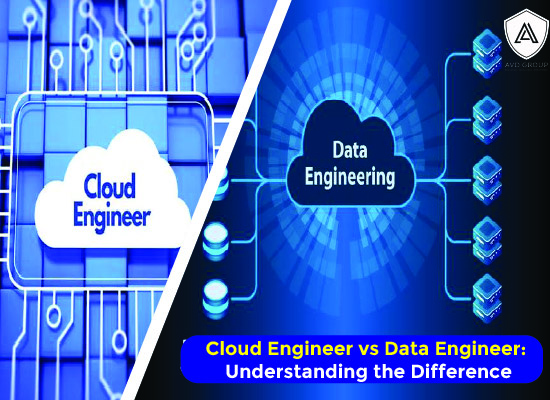Cloud Engineer vs Data Engineer: Understanding the Difference

Starting a career in tech can sometimes feel like standing at a crossroads. With fields like cloud computing, AI, and data engineering growing so fast, it’s normal to feel unsure. Both cloud and data engineering careers are popular today, with great pay and exciting opportunities. Still, what matters most is figuring out which role suits your strengths and ambitions.
If you are someone exploring career opportunities, this comparison will help you decide. And if data excites you, the best data engineering course with placement in Bhubaneswar could be your first step toward an excellent career.
Who Is a Cloud Engineer?
Cloud engineers make sure a business’s apps and data work properly in the cloud. They set up the cloud, manage security, and handle any problems. AWS, Azure, and Google Cloud are the main platforms they use.
Key responsibilities include:
- Cloud Architecture: Designing cloud systems that meet business requirements.
- Deployment: Rolling out applications and managing them in the cloud.
- Maintenance: Keeping an eye on performance, uptime, and security.
- Teamwork: Working closely with developers, IT staff, and other professionals.
Skills needed:
- Expertise in AWS, Azure, or GCP.
- Understanding networking basics like VPNs, firewalls, and IP systems.
- Knowledge of containers such as Docker and Kubernetes.
- Strong awareness of security practices.
- Experience with DevOps tools like Terraform and CloudFormation.
A cloud engineer ensures that businesses can use cloud technology effectively, securely, and at scale. If you want to enter this field, consider joining an affordable AWS data engineering course in Bhubaneswar.
Who is a Data Engineer?
A data engineer creates pipelines and storage systems so that information flows smoothly and is easy for data scientists to work with.
Key responsibilities include:
- Data Pipelines: Building systems that pull data from multiple sources.
- Integration: Bring together information from different sources and ensure it fits well into the pipeline.
- Modeling: Build logical models that support efficient storage and help in accurate analysis.
- Storage: Take care of the underlying systems where the data is stored, from traditional databases to modern data lakes.
- Optimization: Adjust and refine data workflows to reduce delays and improve reliability.
Skills needed:
- Understand how to use SQL, NoSQL, and different big data platforms.
- Knowledge of frameworks like Hadoop and Spark.
- Experience in cloud-based storage systems.
- Skilled at building data pipelines that can handle very large datasets smoothly.
For anyone who enjoys working with raw information and turning it into something meaningful, data engineering can be a rewarding career path. If you are aiming for a career in data, looking into a top-rated big data engineering course near me in Bhubaneswar could give you the right direction.
Read This: AWS Data Engineering: A Complete Guide for Beginners
Cloud Engineer vs Data Engineer: What’s the Difference?
Although both roles need strong technical skills, their goals are not the same.
Job focus: Cloud engineers design and maintain the cloud environment, while data engineers manage how information travels within it.
Workplace: Cloud engineers usually find roles in companies that offer or use cloud services, while data engineers are more common in data-heavy industries such as finance, retail, or technology.
Programming: For cloud engineers, the focus is coding in Java, Python, and Ruby. For data engineers, it is about managing and shaping data with SQL, NoSQL, and big data tools.
Salary Outlook
These professions are well-compensated; here’s an overview of what they earn in India.
Cloud Engineers: For freshers, pay starts at ₹6–12 LPA, rises to ₹12–25 LPA for mid-level, and reaches ₹25–50 LPA at the senior level.
Data Engineers: Freshers earn ₹5–10 LPA, mid-level professionals ₹10–20 LPA, and senior experts ₹20–40 LPA.
With certifications and experience, these numbers rise significantly. The growing reliance on cloud services and big data ensures steady growth for both fields. This is why courses such as a Hands-on cloud data engineer course in Bhubaneswar are becoming increasingly popular among freshers and working professionals.
Which Career Should You Pick?
The choice depends on your interests:
If you enjoy designing systems, scaling applications, and working on cloud platforms, cloud engineering may be right for you.
If you are fascinated by data, love solving problems, and want to create systems that make information usable, data engineering is the better option.
Both careers are future-ready, and starting with data engineering classes for beginners in Bhubaneswar helps getting hands-on skills for a strong start.
Final Thoughts
Choosing between Cloud and Data Engineering can be tough, but both careers offer exciting prospects. Cloud Engineers manage cloud systems, and Data Engineers make sense of large amounts of data. If you want to start strong in this field, the best data engineering course with placement in Bhubaneswar is a great place to begin.
Ready to take the next step? AVD Group provides practical, industry-focused training with hands-on practice and placement support to help you succeed. Get in touch today.
Frequently Asked Questions
- What is the difference between a Cloud Engineer and a Data Engineer?
A Cloud Engineer builds and manages cloud platforms, while a Data Engineer designs pipelines to turn raw data into usable insights. - Who earns more, Cloud Engineer or Data Engineer?
In India, Data Engineers earn ₹8–16 LPA vs. Cloud Engineers ₹7–15 LPA; in the USA, Cloud Engineers average $110K–160K vs. Data Engineers $100K–140K. - Which is better, Cloud Engineering or Data Engineering?
Cloud suits those into infrastructure and DevOps, while Data Engineering is better for those who love coding and analytics. - What skills are required for Cloud Engineers and Data Engineers?
Cloud Engineers need AWS, Azure, Kubernetes, Terraform, and DevOps skills, while Data Engineers require SQL, Python, Hadoop, Spark, and ETL expertise.

